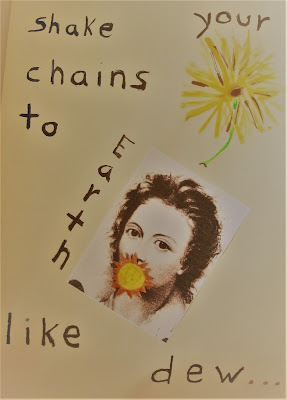That was by design. Rubinstein was an
uncompromising leftist, a member of the Communist Party for 15 years,
but even McCarthyism and the blacklist could not silence or still her
completely.
As with Vito Marcantonio, with whom she
ran on the American Labor Party ticket once, her extensive labors
ceaselessly expended over most of her 97 years, have been erased from
this country's recent historical memory.
The Vito Marcantonio Forum (VMF) will
take a first step in the remembering of Rubinstein on March 4, with a
program entitled, “Beloved Comrades,” featuring Dr. Gerald Meyer,
author of “Vito Marcantonio: Radical Politician,” VMF co-chair,
and a friend of Rubinstein's, who will discuss the nature of her
relationship to East Harlem's congressman.
Meyer has written of Rubinstein and her
ability, “to influence countless numbers from every generation and
to continue her work under all circumstances, including political
repression and advanced age, in combination with her decent and
caring approach to individuals, stands as a model for those who
themselves have questioned what it can mean to live a good and
productive life within the often vilified and marginalized American
left.”
Her political and life choices, he has written, were motivated by her progressive secular Jewish identity.
Her political and life choices, he has written, were motivated by her progressive secular Jewish identity.
Rubinstein was accepted to Barnard
College at the age of 15, but was turned away on orientation day,
because the quota for Jews had been calculated incorrectly. She went
to New York University instead, and by the age of 24, had earned her
doctorate.
Bryn Mawr offered her a professorship
at the height of the Great Depression, if she would anglicize her
name, and Rubinstein refused.
 |
| George Gordon - Lord Byron |
That led to a job in the Depression-era
Home Relief Bureau where she encountered the difficulties of Italian
and East European Jewish families coping with America. Characteristic
of most everything to come, Rubinstein joined efforts organize her
fellow caseworkers into a union.
In 1939, she joined the American Labor
Party (ALP) and ran for assembly on Manhattan's upper West Side in
1942 and 1947. In 1949, she returned to the hustings at Marcantonio's
urging, unsuccessfully contesting a congressional seat against
Franklin Delano Roosevelt Jr.
She became an educator, through her
purchase of the Robert Louis Stevenson School, which eventually
started accepting GI education benefits from World War Two Puerto Ricans veterans. The school absorbed 600 of the vets, whom nobody
seemed willing to take on.
Rather than lauding Rubinstein, the
federal Veterans Administration initiated a process that ended with
her blacklisting and that of 12 other teachers at the school,
including her 67-year old mother.
Of course, Marcantonio is gone by now.
How many lost a protector with his untimely passing?
Writes Meyer, “[I]t was really from
the moment of her blacklisting that her work as an important left
intellectual began.” More than half of Rubinstein's output was concerned with literature, according to Meyer.
 |
| John Keats |
Her signature work is the 900-plus page
volume, “The Great Tradition in English Literature From Shakespeare
to Shaw.”
As part of the “Beloved Comrades”
program, author Stephen Siciliano will discuss Rubinstein's analysis
of the 18th century Romantics.
Rubinstein was influenced by Hungarian
social and literary theorist Georg Lukacs. In his 1937 book, “The
Historical Novel,” Lukacs developed a new Marxist aesthetic intent
on humanizing the way history is recounted by breaking down broad
based political and social movements to the interaction of its
particular agents, the people.
Rubinstein's reading of English
literature at the dawn of the great bourgeois epoch focuses on the
writers' public lives, political activities and the social
component to their work.
She penned a second review following "The Great Tradition..." entitled, “American Literature Root and Flower: Significant Poets,
Novelists and Dramatists, 1775-1955.” Rubinstein was the driving
force and editor behind the publishing of “I Vote My Conscience,”
a collection of Vito Marcantonio's speeches, debates and writings in
the years immediately after his death in the 1950s.
She wrote some 200 articles and reviews
for outlets diverse as “Mainstream,” “Monthly Review,”
“Jewish Currents,” “Science and Society,” and the “National
Guardian.” There were countless pamphlets, essays and letters,
almost all of it, Meyer writes, “organically connected” to
Rubinstein's political activism.
In the communist world, her reception
was distinct from that in her own country. “Root and Flower,” was published in China where
schools used it as a text. She traveled the Soviet Union and Eastern
block, where her works were celebrated and she got to see socialism in
practice.
 |
| Percy Bysshe Shelley |
Professor Meyer has written that
Rubinstein explained how her lectures on Shakespeare, “were
motivated by an encounter during the thirties with a Communist who
scoffed at her suggestion that he attend a production of 'Macbeth.'
He responded, 'Why would a leftist want to see a play about kings and
queens?'”
Answering that question became, “a
type of life-long mission for her,” wrote Meyer.
Rubinstein died in 2007 and achieved
too much, worked too hard, affected too many lives for the good, to
be erased from memory by a collective insanity that impacted she and
so many others.
Please join the Vito Marcantonio Forum for a revival of
Annette T. Rubinstein's politics and literature and life.
"The Goodfather (A Novel): The Rising Fall of the Marvelous Marcantonio," can be purchased here: MARC LIVES!

No comments:
Post a Comment